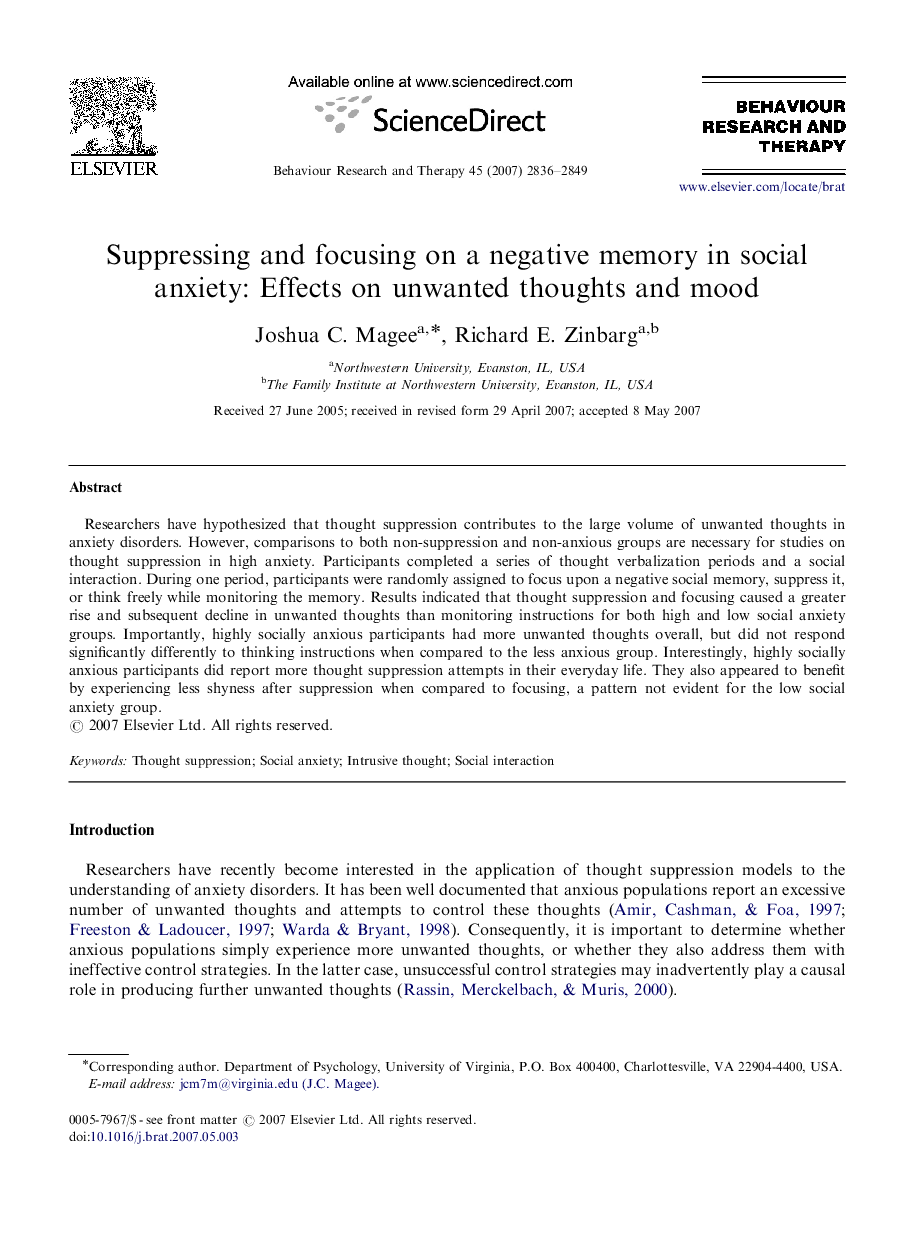| Article ID | Journal | Published Year | Pages | File Type |
|---|---|---|---|---|
| 10444831 | Behaviour Research and Therapy | 2007 | 14 Pages |
Abstract
Researchers have hypothesized that thought suppression contributes to the large volume of unwanted thoughts in anxiety disorders. However, comparisons to both non-suppression and non-anxious groups are necessary for studies on thought suppression in high anxiety. Participants completed a series of thought verbalization periods and a social interaction. During one period, participants were randomly assigned to focus upon a negative social memory, suppress it, or think freely while monitoring the memory. Results indicated that thought suppression and focusing caused a greater rise and subsequent decline in unwanted thoughts than monitoring instructions for both high and low social anxiety groups. Importantly, highly socially anxious participants had more unwanted thoughts overall, but did not respond significantly differently to thinking instructions when compared to the less anxious group. Interestingly, highly socially anxious participants did report more thought suppression attempts in their everyday life. They also appeared to benefit by experiencing less shyness after suppression when compared to focusing, a pattern not evident for the low social anxiety group.
Related Topics
Health Sciences
Medicine and Dentistry
Psychiatry and Mental Health
Authors
Joshua C. Magee, Richard E. Zinbarg,
